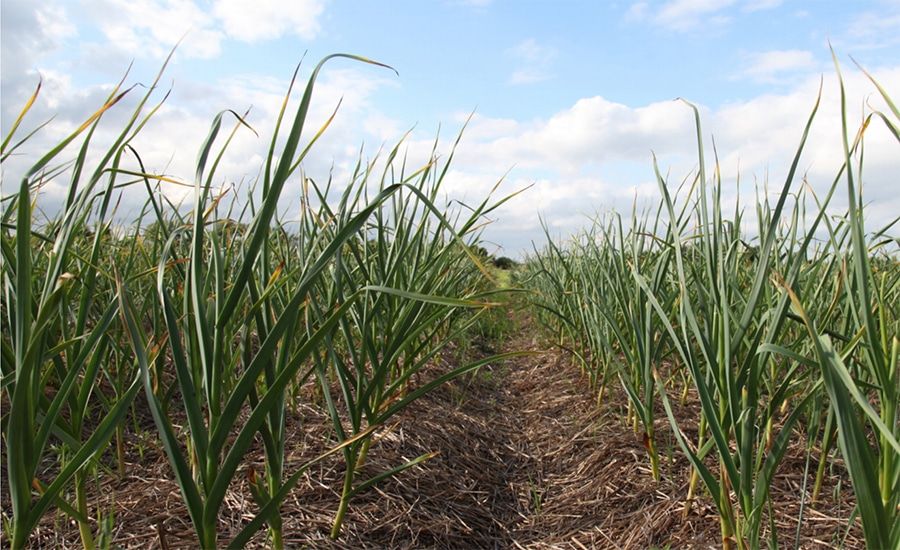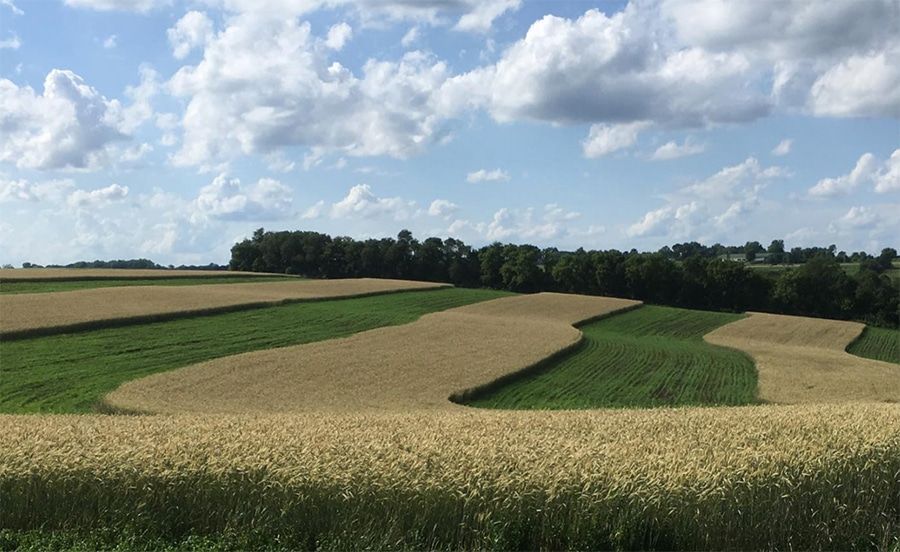THE ORGANIC SYSTEM
THE ORGANIC SYSTEM

Iroquois Valley’s farmers recognize that soil is a living system and they have an important role in improving and keeping it healthy. Healthy soils enable healthy plants, animals, and humans. Through practices such as diverse crop rotations, cover cropping, and integrated livestock Iroquois Valley farmers work to mimic the processes of the natural environment without synthetic inputs. Organic farming systems are prohibited from using synthetic inputs.
Iroquois Valley encourages its farmers to go beyond the USDA organic standard and manage soil health closer to how nature would, reducing the need for inputs overall. This enables healthier soil and more financially healthy farms.
Organic farmers, in the absence of pesticides, often use tillage to combat weeds. Tillage, if done incorrectly, can disturb the soil and contribute to soil compaction, erosion and loss of organic matter. The impact of tillage as a management tool for organic farmers depends on context: the type of tillage tool used, for what purpose, and under what conditions are all factors in a system of organic management.
Iroquois Valley works with all types of organic systems, acknowledging that systems of soil health management may look different from farm to farm.
QUICK FACTS
-
Pesticide application negatively impacts soil health by significantly decreasing the microbial abundance and diversity of the soil.
-
Soils on organic farms can average 19% higher total soil organic carbon, a central component of soil organic matter which is critical in the fight against climate change.
-
Soils treated with synthetic fertilizers are more likely to be affected by soil compaction, which can decrease nutrient retention & increase runoff.
-
Iroquois Valley supports whole farm system change, which provides greater enhancement of ecosystem services over single practice approaches.
-
Organic farming can decrease soil erosion by 30% over conventional farming.
-
Iroquois Valley encourages farmers to keep soil covered. Cover crops can double the amount of water absorbed in the soil in organic systems.
Read more on Soil Health
It is vital that agricultural production does not continue to degrade soil and pollute waterways. Despite billions of dollars offered through voluntary cost-sharing programs, farmer adoption of conservation and soil health improving practices remains low. By focusing on organic farming, Iroquois Valley supports a network of farmers to do just that through a variety of approaches.
Iroquois Valley takes a systems-based view of soil health management. Our approach recognizes soil is a living system and that managing that system well has environmental as well as socio-economic benefits. Organic farming systems that work to improve soil health have positive economic impacts for both the farms and the communities in which they are embedded.

IN SUMMARY
Iroquois Valley supports organic and transitioning farmers because of the soil health benefits organic agriculture provides. Organic agriculture works to mimic natural processes by eliminating off farm synthetic inputs.
Likewise, tillage is one tool that a farmer has to manage their system to meet a variety of economic and environmental outcomes. Although tillage has been correlated with some negative soil health outcomes, organic management has shown to improve soil health through a reduction in erosion, an increase in soil organic carbon below the soil surface, and an increase in nutrient availability. An increase in diversity and soil cover is also shown to be an important factor that can mitigate impacts of tillage.
Iroquois Valley supports the integrated use of tillage, when implemented with careful planning and done in concert with other soil health-promoting practices.

